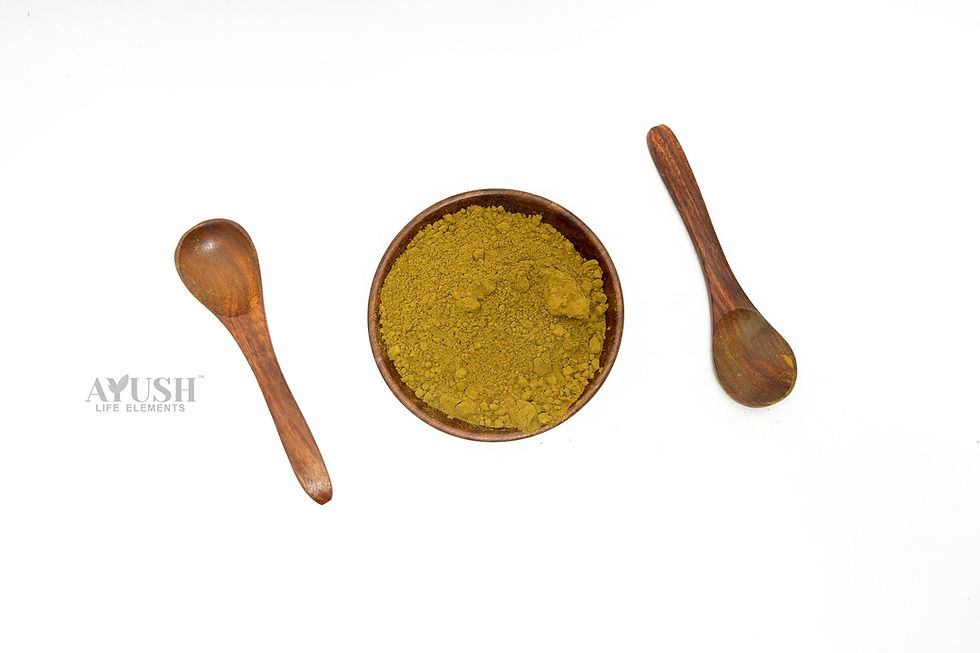Stevia Leaves - The Natural, Zero-Calorie Sweetness
Botanical and Common Names
Botanical Name: Stevia Rebaudiana
Common Name: Stevia
Nutritional Content
Stevia leaves, though primarily known for their sweetness, also offer some essential nutrients. They contain trace amounts of carbohydrates, proteins, and minerals such as potassium, magnesium, and iron. Importantly, Stevia contains zero calories, making it a favoured option in diets and healthy eating regimens.
Flavour Description
Stevia leaves are renowned for their intense sweetness that significantly outdoes conventional sugar. This plant-based sweetener delivers a clean, crisp sweetness with a slight liquorice-like aftertaste. Its natural flavour can sweeten various beverages and recipes without adding any unnecessary calories or spiking blood sugar levels.
Benefits and Side Effects
Stevia Benefits:
Zero-Calorie Sweetener: Stevia is a zero-calorie sweetener, making it ideal for weight management plans and those aiming to decrease their caloric intake.
Diabetic-Friendly: Stevia leaves are non-glycemic, which means they do not impact blood sugar levels, a feature particularly beneficial for people with diabetes.
Natural Sugar Alternative: Stevia is a plant-based, natural alternative to synthetic sugar substitutes and is considered safer for long-term use.
Dental Health: Unlike sugar, Stevia does not contribute to tooth decay, making it a healthier option for satisfying sweet cravings.
Side Effects:
Stevia is generally safe for consumption. However, some individuals might experience bloating, gas, or a mild allergic reaction. It's recommended to consult a healthcare professional before incorporating Stevia into your diet, especially for those under medication or pregnant.
Recipe Suggestions and Home Remedies
Recipe Suggestions:
Stevia-Sweetened Lemonade: Crush a few fresh Stevia leaves and mix them into your lemonade recipe. You can also infuse the Stevia leaves in the water for a few hours before preparing the lemonade for a more intense sweetness. Adjust the number of leaves according to your preference.
Stevia Herbal Tea: For a naturally sweet tea, add 2-3 fresh or dried Stevia leaves to your regular tea while brewing. Remove the leaves before drinking. This not only sweetens the tea but also adds a distinct, fresh flavour to it.
Stevia Smoothie: Add crushed Stevia leaves to your morning smoothie. Start with 1-2 leaves for every cup of smoothie and adjust according to taste. This is a great way to sweeten your smoothie without adding processed sugar or artificial sweeteners.
Stevia Desserts: In your baking recipes, replace sugar with Stevia leaves. For every cup of sugar, substitute with approximately one teaspoon of dried, ground Stevia leaves. This may vary according to the desired sweetness, so it's best to start with less and add more if needed.
Stevia Salad Dressing: Make a low-sugar salad dressing by combining crushed Stevia leaves with olive oil, vinegar, salt, and pepper. This can be a great way to add a hint of sweetness to your salads without loading them with calories.
Home Remedies:
Blood Sugar Regulation: Drinking Stevia leaf tea regularly can help in maintaining healthy blood sugar levels due to its non-glycemic nature.
Weight Management: Using Stevia leaves as a natural sweetener in your beverages and food can aid in weight management as it provides sweetness without the added calories.
Skin Care: Stevia has anti-bacterial properties. A paste made from Stevia leaves can be applied to skin blemishes or acne as a natural remedy.
Oral Health: Chewing on a Stevia leaf after meals can promote oral health as it does not contribute to tooth decay like regular sugar.
Digestive Aid: Stevia leaf tea can be used as a digestive aid to help soothe an upset stomach. Drinking a cup of this tea after meals is suggested for optimal digestive health.
Remember, it's always advisable to consult a healthcare professional before using any herbal supplements, especially if you are pregnant, nursing, or on any medications.
Buying and Storage Guide
When purchasing Stevia leaves, ensure they are green and free from blemishes or mould. Dried Stevia leaves should be kept in a cool, dark place in an airtight container to maintain their flavour and freshness.
Usage Suggestions
Stevia leaves can be used fresh, dried, or as an extract. They are ideal for sweetening hot and cold beverages, baking, and making desserts, and can even be used in homemade skincare preparations due to their antibacterial properties. Stevia's potency means a little goes a long way, so use sparingly and adjust to taste.
Remember, everyone's sweetness preference varies, so start with small amounts and increase as needed. Enjoy the natural sweetness of Stevia leaves in your everyday life, enhancing the flavour of your dishes while supporting a healthier lifestyle.
Stevia Leaves | Stevia Rebaudiana
Botanical Name
Stevia Rebaudiana
Plant Family
Asteraceae
Synonyms
Candy Leaf, Sugar Leaf, Sweet Herb of Paraguay, Sweet Honey Leaf, and Stevia
Part Used
Dried Leaves



















